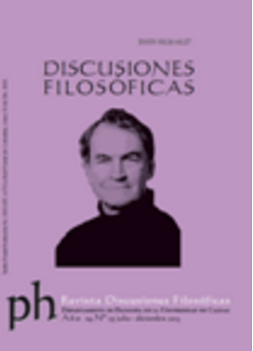Authors
Abstract
This paper tracks down the importance of three principles of the philosophy by Charles S. Peirce, applied to the particular case of perception and cognition. These principles are: sinechism, or the principle of continuity; realism, in both ontological and epistemological sense; and empiricism, in a new formulation opposed to the traditional empiricism. As a result, I shall argue for three claims (i) Peirce defends a continuity between sensation and reason, that avoids Cartesian dualism (sinechism); (ii) he accepts the independence of the object and the subject without being a naïve realist (scholastic Peircean realism); and (iii) he admits subjective elements both in perception and in reasoning without falling into idealism (Peircean radical empiricism).
References
Bernstein, Richard, J. “Peirce’s Theory of Perception”. Moore, Edward and Richard Robin (eds.). Studies in the Philosophy of Charles Sanders Peirce. Amherst: The University of Massachusetts Press, 1964. Print.
Reilly, Francis E. Charles Peirce’s Theory of Scientific Method. New York: Fordham University Press, 1970. Print.
Peirce, Charles S. Collected Papers. Cambridge, MA: Harvard University Press, 1958. Print.
---.The Essential Peirce: Selected Philosophical Writings. Bloomington: Indiana University Press, 1992. Print.
---. Writings of Charles S. Peirce: A Chronological Edition. Indiana: Indiana University Press, 2009. Print.

 PDF (Español)
PDF (Español)
 FLIP
FLIP

























